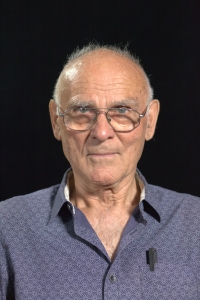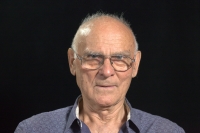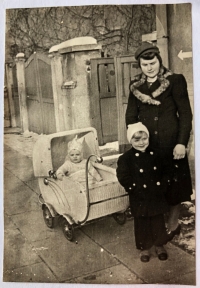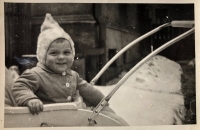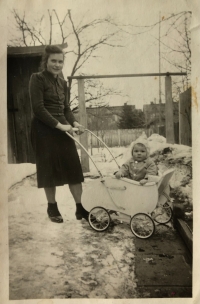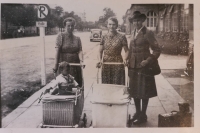My grandfather has no grave. I visit the memorial to the victims of Krnov internation camps instead.
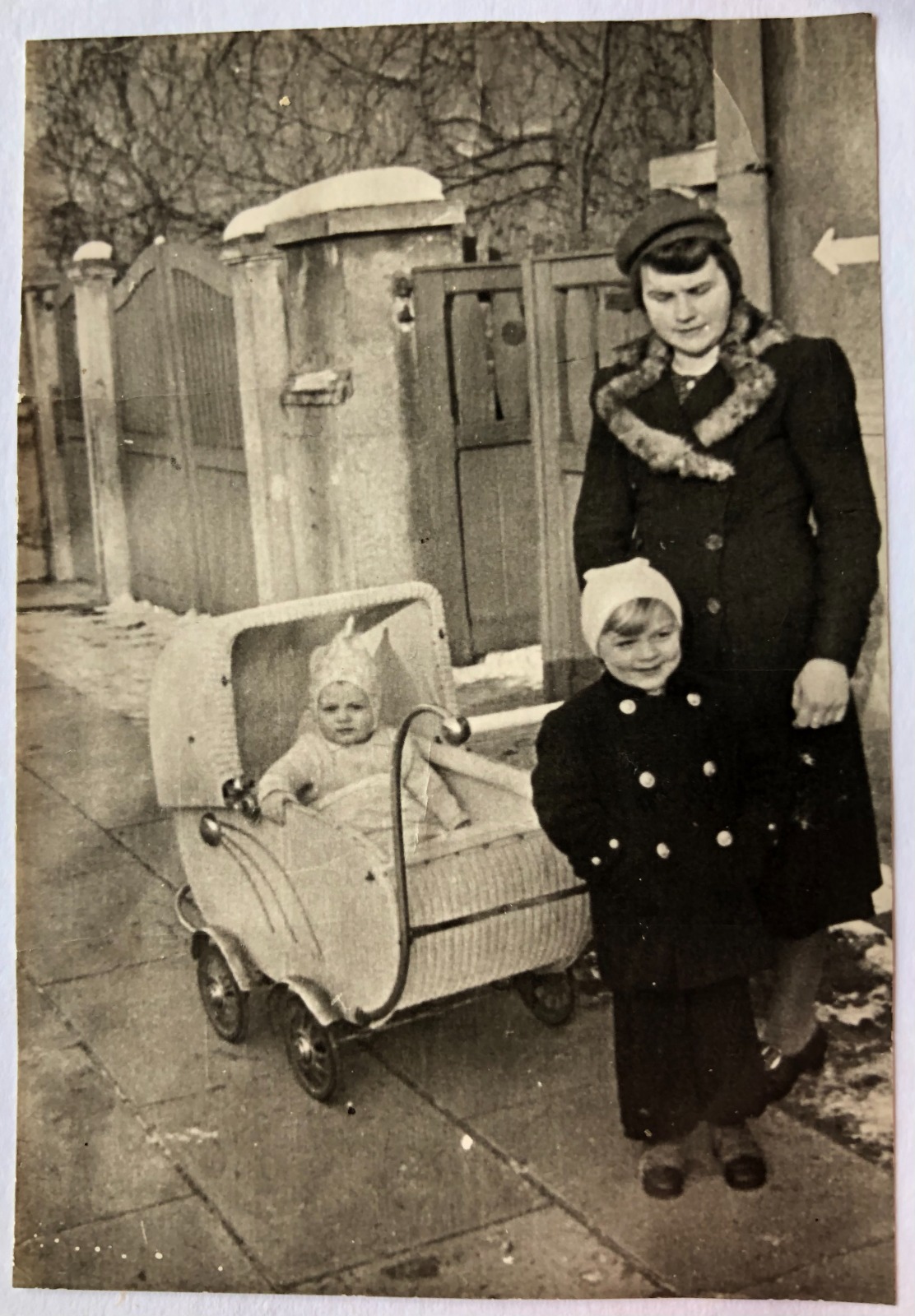
Stáhnout obrázek
Günter Klemenz was born in 1941 to a German family in Krnov. His mother was a tailor, his father a tanner. But during his childhood, Klemenz only saw his father sporadically, from 1939 he was called to service in the Wehrmacht and fell into Russian captivity. Günther therefore grew up with his mother and grandparents in their house, which today is Fügnerova Street No. 9. In the initial post- war days, Günther, his mother and younger brother had to leave the house, being placed in one of the Krnov internment camps for Germans, most likely the one in Cvilín. From here, in June 1945, they joined the so-called hunger march, in which roughly three thousand Germans were expelled on foot from Krnov. Estimates are that about three hundred of them didn’t survive the journey. The foot march lasted several days and led from Krnov to Králíky, but, after two days and nights, the Klemenz family were allowed to leave and stay with their relatives in Ostružná, which possibly saved the exhausted children’s lives. They lived with their mother’s relatives in Ostružná (Špornava at the time) until the autumn, when they hid in the flat of a Czech relative in Valašské Meziříčí. From January 1946 until expulsion in July of that year, they lived in an abandoned farmhouse in Petříkov u Ostružné. They were expelled in cattle cars to Bavaria, where they initially lived with some farmers and after meeting up with their father, in the industrial towns of Rhineland. Günter Klemenz is a doctor, gynaecologist. Between 1976–1980 he also worked at a missionary hospital in Rwanda. Since 2017, he has participated in events memorialising the hunger march in Krnov, on 28 June 2022 he took part in the first symbolic reconciliation march of both Czechs and Germans.
